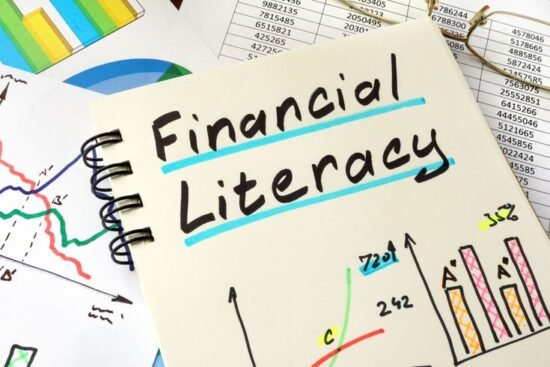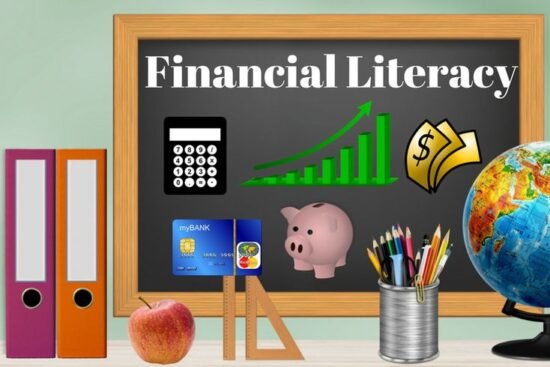Financial Planning
Financial planning is managing your finances to achieve your short-term and long-term financial goals. It involves evaluating your financial situation, setting realistic goals, and creating a roadmap. Whether planning for retirement, saving for a child’s education, or simply aiming to manage your day-to-day expenses more effectively, financial planning is essential for building a secure future.
Frequently Asked Questions
Financial planning is a comprehensive approach to managing your finances to achieve your life’s economic objectives. This process involves assessing your current financial situation, identifying your goals, and developing a plan to reach those goals. Financial planning covers budgeting, saving, investing, retirement planning, tax management, and risk management.
Financial planning is crucial because it helps you understand your financial situation, set achievable goals, and create strategies to meet them. With a solid financial plan, you can manage your income more effectively, reduce debt, save for the future, and ensure you have enough resources to handle emergencies. Knowing that you have a roadmap to guide your financial decisions also gives you peace of mind.
Starting financial planning involves several steps:
- Assess Your Current Financial Situation: Evaluate your income, expenses, debts, and savings.
- Set Financial Goals: Identify what you want to achieve financially in the short and long term.
- Create a Plan: Develop a strategy that includes budgeting, saving, and investing to reach your goals.
- Implement Your Plan: Start taking action on your plan, whether saving more, reducing debt, or investing wisely.
- Review and Adjust: Regularly review your financial plan to make sure it still aligns with your goals and make adjustments as needed.
A well-rounded financial plan typically includes the following:
- Budgeting: Managing your income and expenses.
- Saving: Setting aside money for future needs, like emergencies or retirement.
- Investing: Growing your wealth by investing your money into assets that can be appreciated over time.
- Insurance: Protecting yourself and your assets from unexpected risks.
- Tax Planning: Minimizing your tax liability through strategic decisions.
- Retirement Planning: Ensuring you have enough savings to live comfortably after you stop working.
- Estate Planning: Decide how your assets will be distributed after your death.
It’s recommended to review your financial plan at least once a year or whenever there is a significant change in your financial situation, such as a new job, marriage, or the birth of a child. Regular reviews help ensure that your plan remains relevant and that you’re on track to meet your financial goals.
You can create a financial plan independently, especially with the numerous online tools and resources available. However, working with a financial planner can provide expert guidance and help you develop a more comprehensive and tailored plan. A professional can advise on complex issues like investments, taxes, and retirement planning.
Key Terms
Retirement planning involves setting aside money during one’s working years so that one has enough resources to support oneself after one stops working.
An emergency fund is a savings account for unexpected expenses or financial emergencies, such as medical bills or car repairs.
An investment portfolio collects financial investments like stocks, bonds, and real estate. It is designed to grow your wealth over time.
Asset allocation is spreading your investments across different asset classes, such as stocks, bonds, and cash, to balance risk and reward.
Life insurance is a policy that provides financial compensation to your beneficiaries in the event of your death. It is a critical component of financial planning for protecting your family’s financial future.
Debt management involves strategies to reduce and manage your debt, such as creating a repayment plan or consolidating loans.
Net worth is the difference between your total assets and your total liabilities. It’s a key indicator of your overall financial health.
Tax planning involves making financial decisions that minimize your tax liability, such as contributing to retirement accounts or taking advantage of tax deductions.
Estate planning is arranging how your assets will be distributed after your death. This can include creating a will, setting up trusts, and designating beneficiaries.
Your savings rate is the percentage of your income that you save monthly or yearly. Reducing your savings rate is essential for building wealth over time.
Related Post
-
MFS
- 23 Sep 2024
How Miniature Financial Planning Stages Could Upset Conventional Banking
The monetary scene is experiencing a seismic shift because of the ascent of miniature financial planning stages. While traditional banks…
-
MFS
- 20 Sep 2024
Gamifying Your Savings: Can Financial Games Lead to Real Wealth?
Monetary education and saving have been difficult for some people, particularly in our current reality, where moment satisfaction and commercialization…
-
MFS
- 19 Sep 2024
Financial Independence: Steps to Achieve Financial Freedom and Live on Your Terms
Accomplishing monetary freedom is an objective many hope for, yet few have a reasonable guide. Monetary autonomy implies having adequate…
-
MFS
- 30 Aug 2024
What is Personal Financial Literacy?
Financial literacy means understanding one's finances. Financial literacy includes: Becoming skilled at managing one's finances. Learning about budgeting. Adjusting debt…
-
MFS
- 30 Aug 2024
Understanding Unemployment Benefits and Their Impact on Personal Finances in 2024
Unemployment benefits have long been a crucial safety net for individuals out of work. As we navigate through 2024, the…
-
MFS
- 29 Aug 2024
Financial Literacy Training – An Urgent Need for All Workplaces
Environments Money-related Schooling Getting ready - A Desperate Necessity for All Workspaces in 2024 Monetary education will influence an association's…






